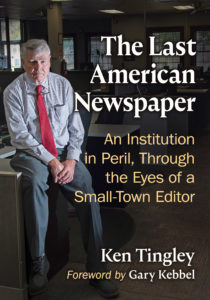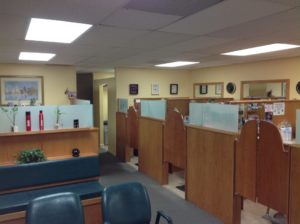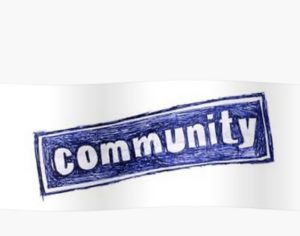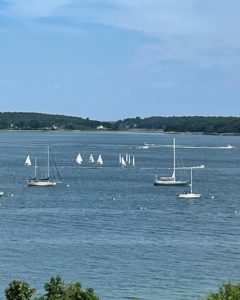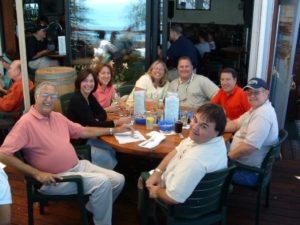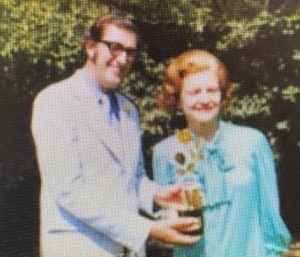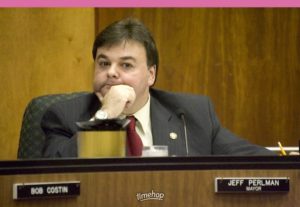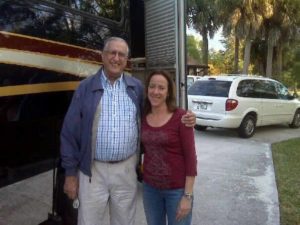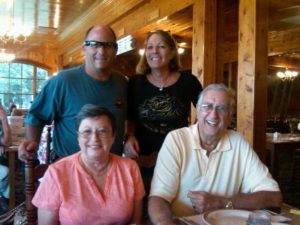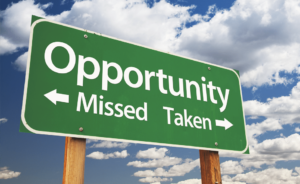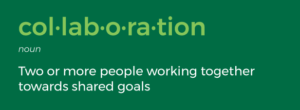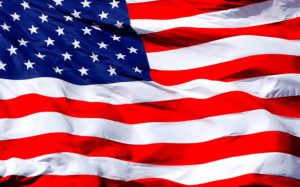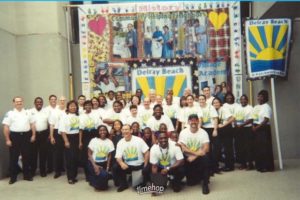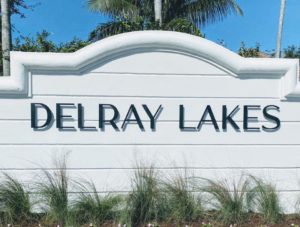
Delray Lakes has been home for more than 20 years.
Our neighbors moved recently.
Whenever friends leave it’s a mixed bag; you’re happy for their new start but you’re sad to see them go. The special people in our lives make all the difference.
The special places also play a significant role in our happiness.
We live in a special place called Delray Lakes.
We’re blessed with a terrific location—close to so much but tucked away and quiet too.
If I can get across Lake Ida Road and make a left, I can be downtown in five minutes. My street has a tree canopy that is beautiful, the homes and lawns are well-kept and if you don’t pressure wash your driveway…well let’s just say you’ll hear about it from the management company.
But the true strength of our neighborhood are the neighbors themselves. We live alongside very nice people.
In a world that often feels crazy, there’s no underestimating the value of having good neighbors who care for each other. In short, we are lucky, and we know it.
When I was a kid, we moved around a little bit.
I went to four elementary schools and looking back it did me a world of good. As the perennial new kid in school, I learned to make friends and that has served me well. But I also think it has unconsciously made me want to be more rooted and truth be told, I’m sensitive to change.
We lived in suburbia— suburban Long Island to be precise, in tract housing built by Levitt Homes, the inventor of the burbs.
Suburbia takes a beating in some of the circles where I spend time– namely new urbanists and city lovers— many who think that the burbs are boring. Now, I love my urban oriented friends and share their passion for cities. But when it comes to suburbia a few of them are misguided.
While I embrace the concepts espoused by the new urbanists and am a fan of walkability, density done right and beautifully designed streets, I must admit that I had a great time in the suburban neighborhoods I’ve lived in.
Intellectually, I understand that the neighborhoods of my childhood weren’t the most efficient use of land. I recognize that subdivisions can be isolating and that they force you into a car for just about everything, but when I was a kid we spent our lives outdoors, we knew our neighbors well and every time I stepped out my door I could find a pickup game of basketball, baseball or football.
We were hardly ever lonely and hardly ever bored. And the Levitt Homes I lived in: Strathmore Village in what is now South Setauket and the “M” section (where every street started with the letter M) in Stony Brook were full of friendly neighbors who looked out for each other.
And we had plenty of interesting characters everywhere we roamed. The house just beyond my backyard was occupied briefly by the writer Sloan Wilson, who wrote “The Man in the Gray Flannel Suit” and “A Summer Place.” Both were made into movies. I knew his daughter well, but I don’t ever recall seeing the man himself, which made it even more romantic for me—a budding writer. Over in the “S” section, where my best friends lived (and where the streets all started with…you guessed it…the letter S) the future comedian Kevin James was a year behind us in school. He played football and was a good Little League pitcher. In fact, he once hit me with a pitch so hard that I was hurting for weeks.
There were others too…stickball legends, a kid who had a beard in the 6th grade and plenty of bushes where we used to stash warm cases of Tuborg beer that we somehow got our hands on.
We stayed outside late on summer evenings talking under the streetlights, shooting hoops in our friend’s driveways, and talking endlessly about girls, cars, sports, music and the future.
I wish I could go back to that sweet and innocent time for just a bit. To quote Andy Bernard from The Office: “I wish there was a way to know you’re in the good old days before you’ve actually left them.”
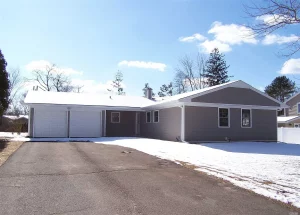
Our home in the M Section. Buyers used to be able to purchase a Levitt home for $500 down. Today, these homes are over $600,000 and over 50 years old.
Delray Lakes reminds me of those neighborhoods. The neighbors play Mah Jong together, take walks, know each other’s dogs, play pickleball, go to the pool and look out for each other.
We watch the local kids grow like weeds, we kvetch about neighborhood maintenance issues, and we wave to each other and sit at the end of our driveways at Halloween greeting the little ones.
The place just feels good.
In a world that often feels like it’s gone off its axis, you can’t put a price on feeling good.
So, when neighbors move it’s a big deal. And right now, there’s a mini transition occurring.
As time passes, our needs change. Some move to more affordable locations (South Florida has become an expensive place to live and our location east of 95 means ridiculously high property insurance rates). Others move because the kids are grown, or they need to be closer to family.
It all adds up to change and transitions, which while necessary and unavoidable, are almost always bittersweet.
I will miss my neighbors who moved and a few others whose homes are for sale. We will stay in touch with some, lose touch with others and we will embrace the new neighbors who move in, but it won’t be quite the same.
When I lived in Strathmore Village, I knew everyone on at least three streets near my house. I knew every kid, every dog, every basketball backboard. We knew each other’s parents and they knew us too.
This was my experience, and it was a good one. The experience I had shaped my life.
I was six when we moved to Redwood Lane in Strathmore Village, and one day a little boy named David rode his bike to my street and saw me outside.
Dave had baseball cards to trade and that was all it took. We’ve been talking ever since that day, 52 years and counting. Through all those elementary schools, through the awkward junior high “wonder years”, through our rollicking high school years, through college, first jobs, marriage, kids and many more moves. Dave to Wisconsin, me to Delray Beach.
Through cancer and Covid, the death of parents and grandparents we know the ups and downs of each other’s lives.
We kept talking. (And I occasionally get a word in).
And it all started as neighbors in Strathmore Village.
When we moved to Stony Brook, that same neighborhood experience happened.
I’m afraid that the concept of neighborhood and neighbors that I knew and cherished may be heading to the dustbin of history.
Both the Financial Times and the New York Times had stories just last week about more and more people living alone.
Young people in their 20s and 30s who live by themselves and often work remotely, (my kids among them) and folks over 50 who have never married or are widowed or divorced.
Apparently, this takes a toll on our mental and physical health.
We are social creatures, not meant to be alone.
One town in the U.K. is experimenting with trained conversationalists. They have set up tables in cafes and designated park benches where if you sit down a trained “talker” will be there to engage you.
Apparently, it’s working. People who participate seem to respond.
But while that’s good news, I can’t help but feel a little sad that it has come to this.
But not in my neighborhood.
I’m not home a lot and when I am, I relish my couch time. But just outside my door, are neighbors I know, like and trust. They are living their lives too, but I’m pretty sure they know that what we have is special and so when one of us leaves the Lakes…well…it’s a big deal.
As it should be…
